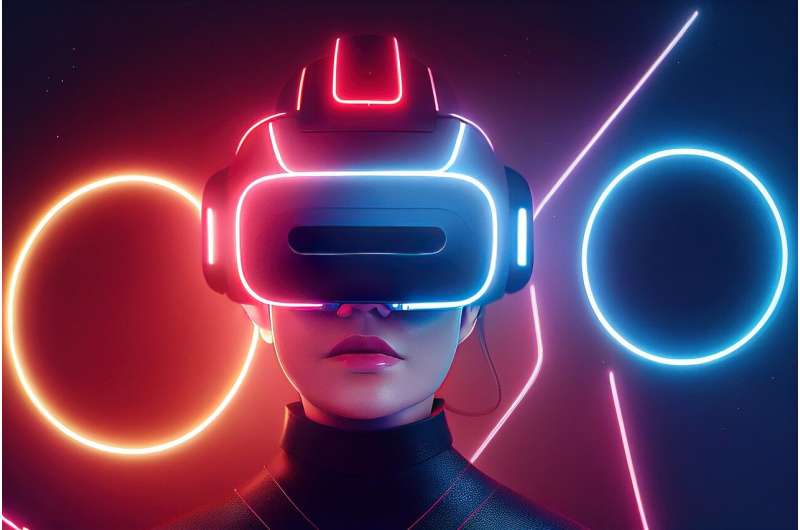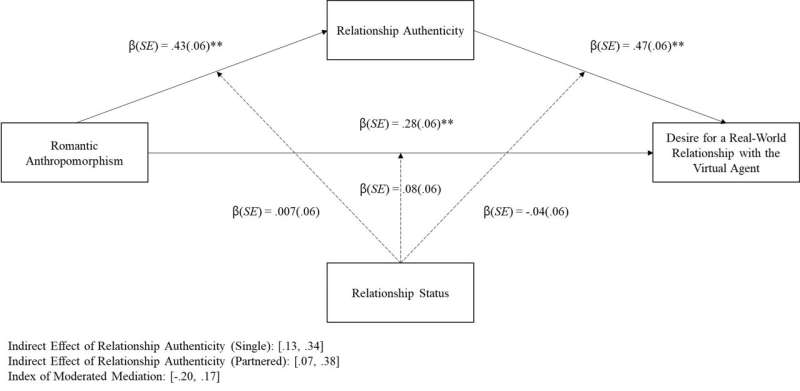Research team explores virtual romantic relationships

An international team of researchers has published a paper introducing the concept of romantic anthropomorphism, which involves giving a non-human agent human-like characteristics in a romantic context. Their work helps to improve researchers' understanding of virtual romance. While previous psychological research has examined how human needs can be met by anthropomorphized agents, this research is the first to examine virtual romantic relationships.
The research was published in the journal British Journal of Social Psychology on August 1, 2022.
"Most romantic relationship research has been focused on human-human social domains, and most previous anthropomorphism research has concentrated on platonic anthropomorphism. Our research helps to cultivate a new field bridging the gap between anthropomorphism and relationship science," said Mayu Koike, an assistant professor in the Graduate School of Humanities and Social Sciences, Hiroshima University.
Virtual agents are playing a more vital role in our modern world. A virtual agent, also called a virtual rep or chatbot, is a software application that uses natural language processing and scripted answers to provide support to humans online. Typically, virtual agents replace human labor, but as these agents become more complex, they are being used in other ways.
People's romantic lives are an important social domain where virtual agents have a growing involvement. The human need to love and be loved is universal. For most of human history, this meant another person—someone to love and love back. But today, it is possible for a virtual agent to fulfill this need.
Romantic video games contain virtual characters who are increasingly interactive and responsive. These games, that provide millions of people with the opportunity to pursue, nurture and enjoy a romantic relationship with a virtual agent, are growing in popularity. Despite the rapid growth in popularity of these games, researchers had not yet systematically investigated these virtual romances.

As virtual agents become more complex and interactive, humans may come to view them as essentially like other humans. If so, then relationships with these virtual agents might feel real and authentic, leading humans to experience positive emotions and have a desire to continue the relationship.
To better understand and explore this concept called anthropomorphism, the research team undertook laboratory studies, using romantic video games to examine how romantic anthropomorphism predicts relationship authenticity, desire for real-world relationships, and mood, as well as real-world interpersonal behavior.
Their first laboratory study revealed that romantic anthropomorphism of a virtual agent predicted a person's desire for a real-world relationship with the virtual agent and greater positive affect via feeling that the relationship built with the virtual agent was authentic. In their second study, they replicated the results of the first study, using a larger sample and a different romantic video game. Their third study replicated the results of the first two studies, but revealed that playing romantic video games failed to predict real-world behavior in a later interaction with a human research actor.
The core pathway uncovered across these three studies revealed that anthropomorphism is linked with outcomes when people feel that their connection and relationship with the virtual agent was genuine.
"This finding suggests that it is not anthropomorphism per se—there is no reliable direct link between anthropomorphism and outcomes—but rather how anthropomorphism feeds through relationship authenticity that predicts a desire for a real-world relationship with a virtual agent and positive mood. Putting it simply, anthropomorphism creates the feeling of authenticity in relationships. In turn, relationship authenticity is meaningful to build a strong bond with agents," said Koike.
The team's research identifies a unique way that people find connection in the modern world and provides novel insight into the fields of anthropomorphism, virtual interactions, and relationship science.
Looking ahead the team suggests that future research could systematically vary the extent to which a romantic interest is likely to elicit anthropomorphism. "This presents an important future direction for this field. Also, it would be beneficial for future research to examine whether personality traits or other individual differences influence whether people engage in romantic anthropomorphism," said Koike.
More information: Mayu Koike et al, Virtually in love: The role of anthropomorphism in virtual romantic relationships, British Journal of Social Psychology (2022). DOI: 10.1111/bjso.12564
Journal information: British Journal of Social Psychology
Provided by Hiroshima University




















